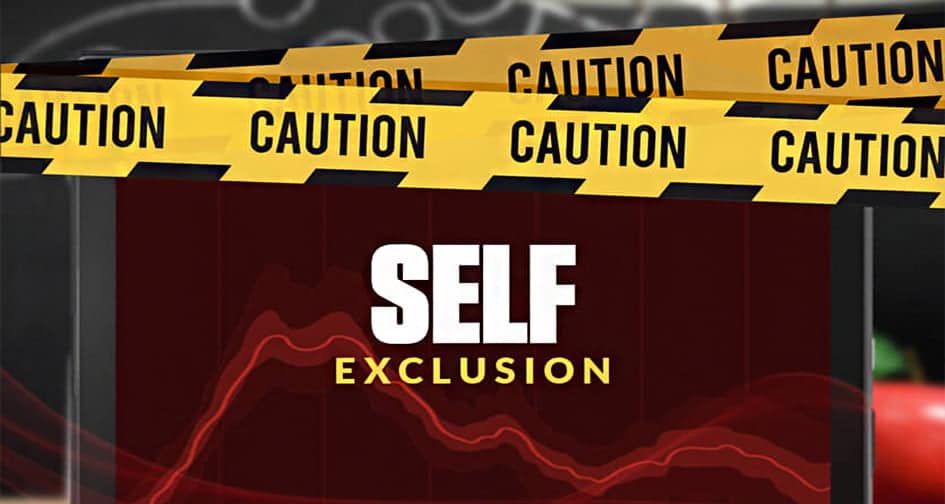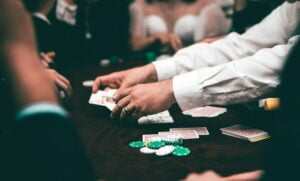The gambling problem or problem gambling, as it is officially called, is a plague in the United States. Statistics from Skywood recovery shows that more than 10 million Americans are addicted to gambling. Since most casino owners are only concerned with milking everyone who walks into their building self-exclusion laws were put in place to help address problem gambling. It is a term used to describe a policy that is enacted by governments or casinos to lawfully prevent some individuals from gambling. If your name appears on the self-exclusion list, casinos will not allow you to gamble within that region. If the list is issued by a casino, you may only be restricted to gambling in that particular casino. On the other hand, if the state adds your name to their self-exclusion list, you will not be allowed to gamble in any casino in the state. You can also decide to voluntarily add your name to a self-exclusion list if you’re struggling with gambling and you need help controlling yourself.

Self-exclusion applications can be sent to the regulators in the state by problem gamblers. If the application is accepted, you will be banned from using the casino for a given period. If you try to gamble in any casino within the self-exclusion coverage, you can be arrested for trespassing. If you succeed in sneaking into a casino that is part of the self-exclusion program and you get caught after winning, your winnings can be confiscated by the casino. You’ll be sent home with absolutely nothing. The good thing with self-exclusion is that the application must be filed voluntarily by the person who wants to be excluded. Family members and friends cannot apply for their loved ones who may have a gambling problem.
Can I Reverse Self-Exclusion?
When you’re applying for self-exclusion, you’ll need to fill the duration of exclusion. It can be as little as 6 months or as much as 10 years. You can even decide to be added to the list for the rest of your natural life. After your application is approved, you cannot reverse it. You must wait until the duration passes before you can change your status. When the specified duration is complete, you’ll have the option to either reverse your self-exclusion or extend it. If anyone could reverse self-exclusion whenever they want, the purpose would be defeated. Compulsive gamblers will reverse self-exclusion whenever they want with impunity.
The choice you make after the self-exclusion expires should depend on your level of commitment and the progress you’ve made during the exclusion program. If you have more control over your gambling addiction and you no longer feel an urge to gamble with everything you own, you can reverse self-exclusion after it expires. Just like other forms of addiction, gambling addiction isn’t something you can fix overnight. There is a strong chance that allowing yourself to gamble, even a little, will take you down a dark path, and all your previous effort would have been for nothing. So, we recommend that you leave your name on the self-exclusion list indefinitely.

Which Countries Offer Self-exclusion
Most major casinos in the United States, United Kingdom, Australia, South Africa, and Canada join the state-approved self-exclusion program. Many other countries across the world offer self-exclusion programs and online self-exclusion programs are also available. Since people who are legally banned from visiting casinos can simply gamble online, online self-exclusion programs have been put in place to help them avoid the urge to gamble for the duration of their self-exclusion. The rules governing self-exclusion in different parts of the world and online may be different but the goal is the same; solving problem gambling. In some other countries, no self-exclusion laws are available and problem gamblers are allowed to gamble until they have nothing left.
How Effective is Self-exclusion in Solving Problem Gambling
Having self-exclusion laws in place is one thing but the effectiveness of these laws in curbing problem gambling is something entirely different. For starters, casinos only join these programs as a form of public relations that is meant to help solve problem gambling. They don’t care about helping problem gamblers but they are only trying to shift everyone’s attention from their problematic industry, products, and services. Even when the casino is genuinely interested in helping problem gamblers, there is still the problem of self-enforcement. As stated above, people have to willingly join the self-exclusion list and they have to enforce it themselves. It takes a lot of self-control and problem gamblers to have problems with self-control. As long as the problem gambler doesn’t take responsibility for their problem, the self-exclusion programs will not help them.
Without self-control, gamblers in self-exclusion programs find a way to circumvent the system and gamble. Not every casino in a state will be part of the self-exclusion program. Illegal casinos are never part of the program. Compulsive gamblers go to these illegal casinos to get their fix. Things are even worse with online self-exclusion programs. Studies have shown that a significant percentage of those who join online self-exclusion programs don’t follow through. Over eighty thousand out of every 1 million people in self-exclusion programs find a way to breach it.
If self-exclusion is to work well, it needs to be more aggressive. Traditional methods aren’t going to cut it. Things shouldn’t be left in the hands of the problem gamblers. Gambling operators need to do more to help people with gambling addiction by taking moral responsibility and engaging in more effective harm-reduction practices. They should try harder to promote safe play. At the surface, problem gambling might seem beneficial to casino operators. However, an increase in problem gambling is going to lead to an increase in scrutiny of the already controversial industry. So, casino operators will benefit from taking preemptive measures against problem gambling in the long run.
Instead of simply adding names to self-exclusion lists, casino operators need to do more to ensure that the problem gamblers don’t circumvent the system. Without money, a person can’t gamble. While self-exclusion programs cannot stop people from using their money, they can partner with banks and other financial institutions. Anyone whose name is in the self-exclusion program should not be allowed to make deposits online or in land-based casinos with their debit or credit cards. Some self-exclusion programs are already taking this step. The device of a problem gambler can also be blocked from visiting gambling websites. This can be done easily through their IP addresses. This method works well when the self-exclusion program is comprehensive and it covers a wide range of casinos rather than just a few.
Blocking IP addresses, and restricting access to money are great ways to enforce self-exclusion programs but it is still important to educate problem gamblers. These people need encouragement from their loved ones as well. They should be encouraged to seek professional help as well. The more moral support they get daily, the more willing they will be to stick to the self-exclusion program for the duration. A combined effort of states, casino operators, and other nonprofit organizations that offer help to problem gamblers will go a long way.
Bottom line
Over the years, gambling addiction has ruined the lives of many problem gamblers. It doesn’t just put them in debt, it has also ruined family relationships and friendships. Some people have been driven to suicide after losing everything they have to gambling addiction. These hardships can be prevented with determination.
People who join self-exclusion programs don’t do it for fancy. They join the programs after they realize that they have a gambling problem. It is one of the things they do to help themselves break the addiction. If you notice that you gamble compulsively, can’t stay for one day without gambling, gamble with everything you have, or even go into debt because of gambling, joining a self-exclusion program might be a good idea. It doesn’t offer any guarantee that your problem will be solved instantly but it’s a step in the right direction.




